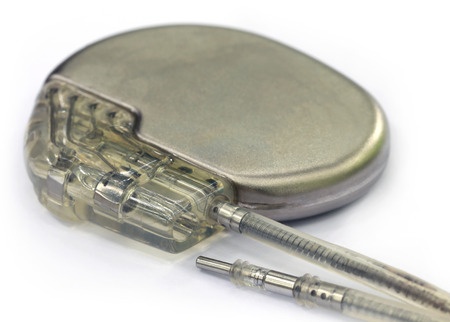Heart Devices Failed in Thousands of Patients over Last 10 Years
November 6, 2017 | Category: Medical Devices | ShareThe Inspector General’s office in the Health and Human Services Department (HHS) said in a report released Monday, October 2, 2017 that officials need to do a better job of tracking costly product failures to protect patients. As reported in The New York Times, “More detailed reporting could lead to earlier recognition of serious problems with medical devices and faster recalls of ‘poorly performing’ ones.”
 The HHS report stated that between 2005 and 2014 nearly 73,000 people on Medicare had a heart device replaced because of recalls, premature failures, medically necessary upgrades or infections.
The HHS report stated that between 2005 and 2014 nearly 73,000 people on Medicare had a heart device replaced because of recalls, premature failures, medically necessary upgrades or infections.
The heart devices included in the report involved:
- Implanted cardio defibrillators
- Pacemakers
Over the past five years, HHS reported that more than 200 devices have been recalled, some of which were manufacturer voluntary recalls.
In August 2015 JAMA (Journal of the American Medical Association) reported in an article titled, Sudden Death in Patients with Cardiac Implantable Electronic Devices (CIED), the following:
- Twenty-two of 517 sudden deaths (4.3 percent) had CIEDs, and autopsies revealed a noncardiac cause of death in 6. Six of 14 pacemaker sudden deaths and 7 of 8 ICD (implantable cardioverter defibrillators or pacemakers) sudden deaths died of ventricular tachycardia or ventricular fibrillation. Device concerns were identified in half (4 pacemakers and 7 ICDs), including 3 hardware failures contributing directly to death (1 rapid battery depletion with a sudden drop in pacing output and 2 lead fractures), 5 ICDs with ventricular fibrillation under-sensing, 1 ICD with ventricular tachycardia missed due to programming, 1 improper device selection, and a pacemaker-dependent patient with pneumonia and concern about lead fracture. Of 712 San Francisco residents with an ICD during the study period, 109 died (15.3 percent cumulative 35-month incidence of death), and the 7 ICD concerns represent 6.4 percent of all ICD deaths.
The FDA (Food and Drug Administration) is charged with monitoring adverse events from medical devices and implants. It alerts the public and health professionals when needed. For more information contact: DICE@fda.hhs.gov.
How do the recalls work?
The FDA reports that when a company learns that there is a problem with one of their medical devices, it proposes a correction or a removal depending on where the action takes place.
- Correction- Addresses a problem with a medical device in the place where it is used or sold.
- Removal -Addresses a problem with a medical device by removing it from where it is used or sold.
FDA uses the term “recall” when a manufacturer takes a correction or removal action to address a problem with a medical device that violates FDA law. Recalls occur when a medical device is defective, when it could be a risk to health, or when it is both defective and a risk to health.
A medical device recall does not always mean that you must stop using the product or return it to the company. A recall sometimes means that the medical device needs to be checked, adjusted, or fixed. If an implanted device (for example, an artificial hip) is recalled, it does not always have to be explanted from patients. When an implanted device has the potential to fail unexpectedly, companies often tell doctors to contact their patients to discuss the risk of removing the device compared to the risk of leaving it in place.
Examples of the types of actions that may be considered recalls:
- Inspecting the device for problems
- Repairing the device
- Adjusting settings on the device
- Re-labeling the device
- Destroying device
- Notifying patients of a problem
- Monitoring patients for health issues
“Should you or a family member be injured as the result of a faulty or defective medical device, such as an implanted defibrillator or pacemaker, contact us immediately. We have the experience to assist you, and there are no costs or attorney fees unless we make a monetary recovery for you,” said Fort Myers Medical Device Lawyer, Randall Spivey of Spivey Law Firm, Personal Injury Attorneys, P. A.
Fort Myers Medical Device Lawyer, Randall L. Spivey is a Board Certified Trial Attorney – the highest recognition for competence bestowed by the Florida Bar and a distinction earned by just one (1%) percent of Florida attorneys. He has handled over 2,000 personal injury and wrongful death cases throughout Florida. For a free and confidential consultation to discuss your legal rights, contact the Spivey Law Firm, Personal Injury Attorneys, P.A., in Lee County at 239.337.7483 or toll free at 1.888.477.4839,or by email to Randall@SpiveyLaw.com. Visit SpiveyLaw.com for more information. You can contact Spivey Law Firm, Personal Injury Attorneys, P.A.in Charlotte County at 941.764.7748 and in Collier County 239.793.7748.

